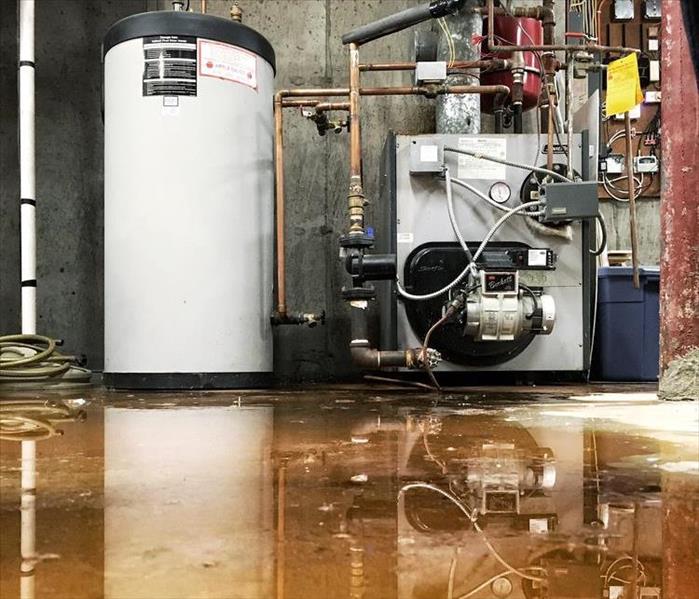The Cost Difference Between Mitigation and Restoration During a Flood
10/7/2020 (Permalink)
Floods continue to be the most prevalent and expensive natural disaster in America. While preventative measures provide quicker and less expensive alternatives to the cost of hiring a flood cleanup company, many property owners do not mitigate against flood damage. This results in high costs and a lengthy restoration process.
Flood Prevention
One of the best preventative recommendations for flood damage is flood insurance, which property owners may purchase through the National Flood Insurance Program, managed by the Federal Insurance and Mitigation Administration (FIMA), for an average of $700 per year.
Some other preventative methods include the following:
• Sealing basement walls with compounds that are waterproof
• Installing reflux valves to prevent drains from backing up
• Moving heat and electrical sources to higher levels
• Backing up data to the cloud
• Making a flood plan, including work-from-home opportunities
Once in place, these measures offer protection, year after year. Even better, property owners can usually have the cost partially or fully covered by FIMA.
Flood Cleanup
In contrast, property owners who did not take preventative measures must hire a flood cleanup company out of pocket. Every day the business is closed is a day of income lost, while the company may have salaried staff to pay.
Drying out the business may take the restoration company a few days, and this can only begin after the flood waters recede. Restoration to pre-flood conditions may only require an additional few days, but in worst case scenarios, it may take a business a while to completely rebuild. Not surprisingly, FEMA estimates that 40 percent of small businesses, many of which do not invest in preventative measures, fail to recover from natural disasters.
When it comes to flood damage, prevention is always better than a cure. Sure, a reputable flood cleanup company may restore your place of business in a matter of days, but investing in proactive measures is the best approach to natural disasters in Denver, CO.





 24/7 Emergency Service
24/7 Emergency Service
